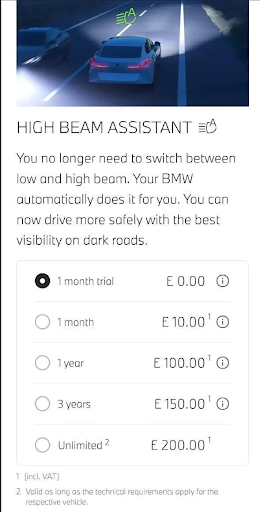BMW is a horrible, horrible company. But before I tell you why, I just want to say that these are not the types of posts I normally make, and I have never publicly denigrated a company before.
However, this is the first time I’ve felt so cheated and wronged that I feel compelled to warn the public about BMW as a company.
What happened to me can and will happen to you if you buy a car from this company. This is also a great lesson for all the business owners in my audience about the potential harm of putting money before customer safety.
Now I want to start by saying that I love the way BMW cars drive. Their driving experience is unmatched, and they offer the best balance of performance and luxury in the automotive industry.
If you don’t mind paying a premium and you go in with the expectation of higher maintenance costs, driving a BMW is like piloting a high performance jet on your commute to work.
I’ve driven European cars all my life, and I generally drive them until the cost of maintenance exceeds the value of the car.
My last car was an Audi A4, which I drove for 17 years, collecting 170,000 miles. The car before that was a Volvo 740 GLE, which I drove for 18 years and 180,000 miles.
Compared to other car brands I’ve owned, I actually prefer the way BMW drives over all of the other European brands. But if your car doesn’t run, it doesn’t matter!
In this post, I’m going to tell you my story about how BMW prioritized profit over my safety, and I’ll let you be the judge. I’ll try not to color the story in any way, and at the end, I’ll talk about some of other sleazy tactics BMW is using to extract money.
Get My Free Mini Course On How To Start A Successful Ecommerce Store
If you are interested in starting an ecommerce business, I put together a comprehensive package of resources that will help you launch your own online store from complete scratch. Be sure to grab it before you leave!
My BMW Story
I bought my BMW 428i Gran Coupe in 2015, spending around $70,000 on what I hoped would be a high-quality car. It was my first BMW, and after driving it off the lot, I was thrilled with how it handled.
Since I work from home most of the time, I only put about 3,000 to 5,000 miles on it per year. Even with such low mileage, I still made sure to get an oil change at least once a year, though I rarely ever hit 10,000 miles annually.
When the car reached about 51,000 miles, I was taking my son to get a haircut, got off the freeway when I suddenly heard a crunching noise from the engine. Moments later, it started making a loud clicking sound.
I pulled over immediately, called a tow truck, and had it taken to the BMW dealership’s service center.
After inspecting the car, they told me I needed a new engine. The cost? A whopping $26,000.
$26,000! The car was only worth around $14,000 at most, so I refused the repair and contacted BMW directly to see what they were willing to do.
After all, almost any car should last well beyond 50,000 miles—especially a BMW. And that’s when I discovered their big cover up.
The BMW Cover Up
I reached out to BMW and explained the situation, and at this point, I wasn’t angry.
The car was out of warranty, so technically, BMW wasn’t obligated to help me. Still, I hoped they would stand behind their cars, understanding that no vehicle should fail at 50,000 miles.
They assured me they would investigate the claim and get back to me within five days.
“Great,” I thought. At least they were willing to look into it. Five days later, I received their response: because my car hadn’t been serviced at an authorized BMW dealer in recent years, they claimed it hadn’t been properly maintained and hinted that the engine failure was my fault.
BMW provides free maintenance for four years or 40,000 miles, whichever comes first. So, for those first four years, I took it to the dealer.
After that, in 2020, I brought it in one more time to check the cost of an oil change and routine service. They charged me $500.
$500! There was no way I was paying that again for an oil change, so after 2020, I started using an independent shop.
Anyway, after a lot of back and forth with BMW, I finally got them to agree to review my oil change records from my local car shop.
After all, we’re just talking about oil changes here. I hadn’t had any issues with the car up until that point, and the low oil light had never come on. Anyone can do an oil change, including me, and there was no way I was paying $500 a pop for it.
Another week passed, and they regretfully informed me that they couldn’t do anything to help.
At this point, I was really disappointed but not angry. The car was out of warranty, and maybe I just got a bad one.
Technically, BMW didn’t have to do anything about it, so I was ready to just accept it and move on.
That is, until I reached out to a friend of mine, who happens to be a mechanic. After doing some digging, we discovered that BMW had been sued in 2017 over a timing chain issue that could cause catastrophic engine damage.
Here’s a link to the class action lawsuit if you’re interested.
BMW Timing Chain Class Action Settlement
I won’t dive into the technical details, but essentially, the timing chain can become brittle and break, causing it to slip and potentially destroy the engine—leading to incredibly expensive repairs.
And guess which model was affected?
While BMW didn’t admit to any wrongdoing in the class action lawsuit, they “voluntarily agreed to resolve the claims.” If you filed a claim by March 2021, BMW would cover the repairs.
At this point, I thought I had found the smoking gun! So, I immediately went back to BMW and said:
I took my car to an authorized BMW service center in 2017, 2018, 2019, and 2020—well after the lawsuit—and never once did they inform me about a defect that could destroy my engine.
You’ve known about this issue since 2017. Why wasn’t I notified? This isn’t some minor issue like a broken heater or AC.
This was a defect that could cause catastrophic damage, and I had been driving a ticking time bomb the entire time.
BMW’s Real Motives Become Clear
Here was BMW’s response: Unlike a recall, where they’re required to notify customers, they are not obligated to reach out to customers as a result of a lawsuit.
“Had your car broken down during the claim period, we would have fixed it for free. But since you didn’t act within that time frame, there’s nothing we can do.”
And that, my friends, is when I lost it. This is how a company creates a lifelong brand hater.
BMW had known about a catastrophic defect in their cars since 2017 and chose not to inform their customers—a defect that could destroy your car at any moment.
When my car broke down, I was with my son, and we had just gotten off the freeway. But what if the engine had failed while we were still on the freeway, going 65 miles per hour? That would have been incredibly dangerous. We could have gotten into an accident and been seriously injured.
This wasn’t just an engine problem—it was a safety issue, too.
But because BMW didn’t “admit any wrongdoing,” they felt no obligation to alert customers about a widespread issue that could ruin their vehicles.
By the way, this defect affects cars made from 2012 to 2015—meaning there are countless defective vehicles on the road.
The folks at BMW likely thought, “Repairing engines on tens of thousands of cars will be costly, so let’s keep this under wraps and only fix the ones that break.”
And if anyone complains about this known catastrophic defect after the claim period? We’re not legally required to fix it.
Taking BMW To The Court Of Public Opinion
So here’s my take: I’m sure this strategy works for BMW because most people can’t make enough noise for it to impact their business.
And yes, technically, BMW doesn’t have to do anything. The claim period has expired, and the warranty is up. Legally, they’re not obligated in any way.
But is this the kind of company you want to support? BMW is clearly counting on this issue being swept under the rug, and to a large extent, it has been.
But my experience with BMW left me so outraged that not only did I create this post and video, but I’m also running anti-BMW ads on my top 25 marketing podcast indefinitely.
And, I’m including anti-BMW segments in all of my videos on my YouTube channel with 350,000 subscribers.
I reach about 2 million people per month across all of my channels and it’s crucial that everyone knows how BMW really does business. Will I make a dent? Maybe, maybe not.
But if I can convince just 0.1% of my audience every month never to buy a BMW, that’s still 2,000 customers BMW will lose every month. And 2,000 people at $70,000 per car is a lot of money.
More Sleazy BMW Tactics Exposed
Oh, and it gets worse. While doing more research on BMW, I discovered some other shady business practices they’re currently using.
BMW is now trying to squeeze more money from customers by offering subscription services for hardware features that are already in the car—like high beam lights.
I’m not joking. It’s a subscription for a feature called High Beam Assistant. What they’re promoting, and even bragging about, is a function you can find in cars that cost around $20,000.
The high beams turn on, detect an oncoming car, turn off, and then switch back on once the car passes.
Technically, you can purchase it permanently for $200, but that’s not the point. The car already has all the hardware to make this work, yet BMW is offering you a trial—like you need to test out auto high beams.
They’ve pulled this move before, too. They tried doing the same thing with heated seats. Even though the car comes with all the electronics, seat heaters, and switches built in, you had to pay a subscription fee to activate them.
BMW dropped that subscription in 2023, but now they’re at it again, this time with their active suspension system.
BMW’s optional adaptive suspension is actually standard—it’s just hidden behind a paywall. The hardware is already installed on models where it’s an option, and you’ve essentially already paid for it. Yet now, you have to fork out $30 a month to keep it working.
Let’s pause and think about that. BMW is charging you to make the suspension in your $70,000 car actually function. You’ve already paid for it, but if you want to use it, you either pay a monthly fee or buy a lifetime subscription.
All of these features are now controlled over the air. What happens if a server glitch causes your subscription features to be accidentally disabled? Your suspension could suddenly stop functioning as expected—and that’s dangerous.
What Else Is BMW Hiding From You?
The more I research this company, the more disgusted I become. Again, it’s not the cars themselves. BMWs are great and really fun to drive—when they work.
The issue is BMW as a business. They don’t care about you. They don’t stand behind their products. Their only goal is to squeeze as much money from you as possible.
To be clear, I knew what I was getting into when I bought a BMW. People like me expect the higher price tag and more expensive maintenance.
But their business practices are downright shady. While they may be technically legal, I can’t in good conscience continue to support a company like this.
If any of you listening or watching have had a similar issue with BMW, send it my way. Who knows, I may create a BMW sucks website and rank it to the top of Google next.

Ready To Get Serious About Starting An Online Business?
If you are really considering starting your own online business, then you have to check out my free mini course on How To Create A Niche Online Store In 5 Easy Steps.
In this 6 day mini course, I reveal the steps that my wife and I took to earn 100 thousand dollars in the span of just a year. Best of all, it's free and you'll receive weekly ecommerce tips and strategies!
Related Posts In Reviews
- Interview With Sam Dogen – Author Of How To Engineer Your Layoff
- MailChimp Vs Aweber – A Comparison Of Two Email Marketing Providers
- Online Store Products, Services And Tools I Recommend
- Every Tool And Plugin I Use To Run My 7 Figure Blog, Podcast And Online Course Membership Site
- Best Business Podcasts For Actionable Strategies And Tips

Steve Chou is a highly recognized influencer in the ecommerce space and has taught thousands of students how to effectively sell physical products online over at ProfitableOnlineStore.com.
His blog, MyWifeQuitHerJob.com, has been featured in Forbes, Inc, The New York Times, Entrepreneur and MSNBC.
He's also a contributing author for BigCommerce, Klaviyo, ManyChat, Printful, Privy, CXL, Ecommerce Fuel, GlockApps, Privy, Social Media Examiner, Web Designer Depot, Sumo and other leading business publications.
In addition, he runs a popular ecommerce podcast, My Wife Quit Her Job, which is a top 25 marketing show on all of Apple Podcasts.
To stay up to date with all of the latest ecommerce trends, Steve runs a 7 figure ecommerce store, BumblebeeLinens.com, with his wife and puts on an annual ecommerce conference called The Sellers Summit.
Steve carries both a bachelors and a masters degree in electrical engineering from Stanford University. Despite majoring in electrical engineering, he spent a good portion of his graduate education studying entrepreneurship and the mechanics of running small businesses.
















